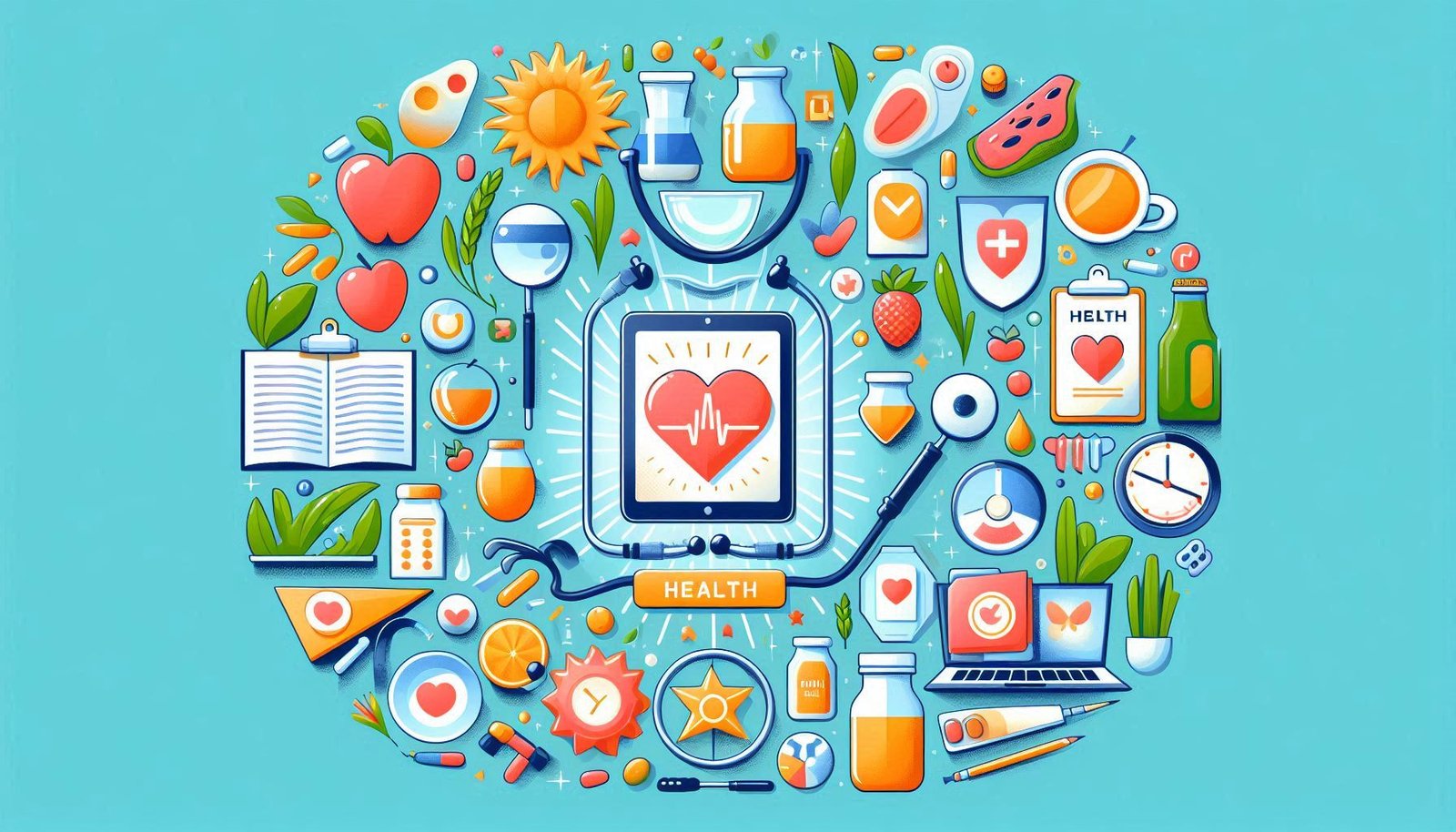Optimal Health: Health is True Wealth: An In-Depth Guide to Achieving Optimal Health: Optimal health tips
In today’s fast-paced world, maintaining good health is more important than ever. The adage, “Health is true wealth,” rings true, as without good health, it’s challenging to enjoy all other aspects of life. This article will provide you with optimal health tips to help you achieve and maintain a healthy lifestyle.

Optimal Health: Health is True Wealth – An In-Depth Guide to Achieving Optimal Health
Achieving optimal health is a holistic journey that involves various lifestyle factors. Here are some essential tips to guide you toward better health and well-being:
1. Balanced Nutrition
- Eat Whole Foods: Focus on whole, unprocessed foods like fruits, vegetables, whole grains, lean proteins, and healthy fats. These provide essential nutrients for your body.
- Stay Hydrated: Drink plenty of water throughout the day. Staying hydrated supports digestion, energy levels, and overall bodily functions.
- Limit Sugars and Processed Foods: Reduce intake of added sugars, refined carbs, and processed foods that can lead to health issues like obesity and diabetes.

2. Regular Physical Activity
- Incorporate Movement: Aim for at least 150 minutes of moderate aerobic exercise or 75 minutes of vigorous exercise each week. Activities like walking, cycling, swimming, or dancing are great options.
- Strength Training: Include strength training exercises at least two days a week to build muscle and improve metabolism.
- Stay Active Daily: Look for opportunities to move throughout your day—take the stairs, walk during breaks, or try standing desks.
3. Quality Sleep
- Prioritize Sleep: Aim for 7-9 hours of quality sleep each night. Good sleep is essential for physical and mental health.
- Establish a Sleep Routine: Go to bed and wake up at the same time daily. Create a relaxing bedtime routine to signal to your body that it’s time to wind down.
- Limit Screen Time: Reduce exposure to screens before bed, as blue light can interfere with your body’s natural sleep cycle.

4. Stress Management
- Practice Mindfulness: Engage in mindfulness practices such as meditation, deep breathing, or yoga to help manage stress and improve mental clarity.
- Stay Connected: Maintain strong social connections with friends and family. Healthy relationships can provide emotional support and reduce stress.
- Engage in Hobbies: Spend time on activities you enjoy to relax and recharge, whether it’s reading, gardening, or crafting.
5. Routine Health Check-Ups
- Regular Screenings: Schedule routine health check-ups and screenings to catch potential health issues early.
- Stay Informed: Keep track of your health metrics, such as blood pressure, cholesterol levels, and body weight. This awareness helps you make informed health decisions.
6. Limit Alcohol and Avoid Smoking
- Moderate Alcohol Consumption: If you drink alcohol, do so in moderation. Limit intake to one drink per day for women and two for men.
- Avoid Tobacco: Steer clear of smoking and tobacco products, as they pose significant health risks.
7. Mental Health Awareness
- Prioritize Mental Health: Take care of your mental well-being through activities that promote relaxation and happiness. Don’t hesitate to seek professional help if needed.
- Practice Gratitude: Regularly reflecting on what you’re grateful for can boost your mood and improve your overall outlook on life.
Conclusion
Optimal health is a lifelong journey that requires a commitment to balanced nutrition, regular exercise, quality sleep, stress management, and preventive care. By incorporating these tips into your daily life, you can cultivate a healthier, more fulfilling lifestyle—truly embodying the idea that health is wealth!

Optimal Health Tips: Health is True Wealth
Understanding the Importance of Nutrition
Balanced Diet
A balanced diet is crucial for maintaining good health. Ensure that your meals include a variety of fruits, vegetables, lean proteins, and whole grains. Avoid processed foods and excessive sugar intake.
Hydration
Staying hydrated is essential for overall health. Drink at least eight glasses of water a day. Proper hydration helps with digestion, circulation, and maintaining body temperature.
Supplements
While it’s best to get nutrients from food, sometimes supplements are necessary. Consider taking vitamins and minerals like Vitamin D, B12, and Iron, especially if you have dietary restrictions.

The Role of Physical Activity
Regular Exercise
Engaging in regular physical activity is one of the optimal health tips for maintaining a healthy body. Aim for at least 150 minutes of moderate aerobic activity or 75 minutes of vigorous activity each week.
Strength Training
Incorporate strength training exercises at least twice a week. Building muscle helps improve metabolism and supports bone health.
Flexibility and Balance
Don’t neglect flexibility and balance exercises. Activities like yoga and tai chi can improve your overall physical stability and reduce the risk of falls.

Mental Health and Stress Management
Mindfulness and Meditation
Practicing mindfulness and meditation can significantly reduce stress levels. Spend a few minutes each day focusing on your breath and clearing your mind.
Social Connections
Strong social connections are vital for mental health. Maintain relationships with family and friends, and don’t hesitate to seek support when needed.
Professional Help
If you’re struggling with mental health issues, seeking professional help is a wise decision. Therapists and counselors can provide strategies and support to manage stress and improve mental well-being.

Quality Sleep for Optimal Health
Sleep Hygiene
Maintaining good sleep hygiene is essential for overall health. Create a relaxing bedtime routine and keep a consistent sleep schedule.
Sleep Environment
Ensure your sleep environment is conducive to rest. A comfortable mattress, cool room temperature, and minimal noise and light can enhance sleep quality.
Avoid Stimulants
Avoid consuming caffeine and heavy meals before bedtime. Stimulants can interfere with your ability to fall and stay asleep.

Preventive Healthcare
Regular Check-ups
Regular medical check-ups can help detect potential health issues early. Schedule annual physical exams and screenings as recommended by your healthcare provider.
Vaccinations
Stay up-to-date with vaccinations to protect against preventable diseases. Consult with your doctor about which vaccines are appropriate for your age and health status.
Healthy Habits
Adopt healthy habits such as not smoking, limiting alcohol consumption, and practicing safe sex. These behaviors can significantly reduce the risk of chronic diseases.
Conclusion
Achieving and maintaining good health requires a holistic approach that includes proper nutrition, regular physical activity, mental well-being, quality sleep, and preventive healthcare. Remember, health is true wealth, and by following these optimal health tips, you can enhance your overall well-being and enjoy a fulfilling life.
https://en.wikipedia.org/wiki/Health






